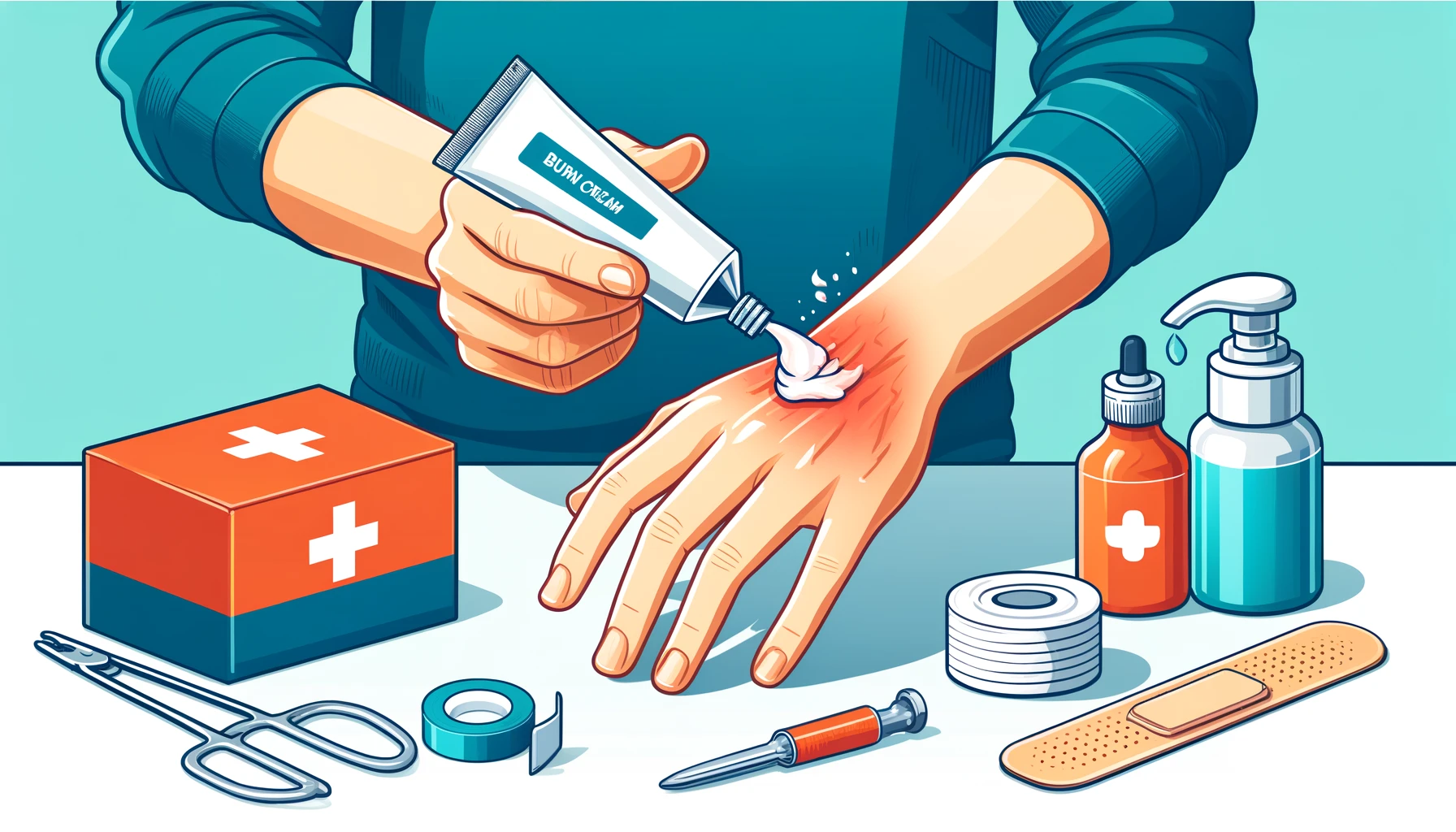Suffering a burn injury can be a traumatic experience, and the road to recovery involves not just healing the wound but also managing the long-term effects on your skin. Proper skincare is essential to prevent complications, improve the appearance of scars, and maintain overall skin health. Here’s a comprehensive guide to skincare after a burn injury, including tips for dealing with eczema and exploring potential compensation if the injury wasn’t your fault.

Immediate Care and Healing
The first step in managing a burn injury is immediate care. It’s crucial to cool the burn under running water for 10-20 minutes to reduce pain and prevent further damage. Avoid using ice or very cold water, as this can worsen the injury. Once the burn has been cooled, cover it with a sterile, non-stick bandage to protect it from infection. Over-the-counter pain relief can help manage discomfort, but it’s essential to seek medical attention for severe burns.
Long-Term Skincare
After the initial healing phase, long-term skincare becomes vital. Keeping the skin moisturized is one of the most important aspects. Burned skin often loses its ability to retain moisture, leading to dryness and irritation. Use a fragrance-free, hypoallergenic moisturizer several times a day. Aloe vera gel or creams containing vitamin E can also be beneficial in promoting healing and reducing scarring. Gentle massage of the scar tissue can improve elasticity and appearance, but it should be done carefully to avoid further irritation.
Recommended Skincare Products for Burn Injury Recovery
| Product Type | Benefits | Examples |
| Moisturizers | Hydrates and soothes dry skin | Cetaphil, Eucerin, Aquaphor |
| Aloe Vera Gel | Promotes healing, reduces inflammation | Fruit of the Earth, Banana Boat |
| Vitamin E Cream | Reduces scarring, improves skin elasticity | Palmer’s, Jason Natural |
| Silicone Gel Sheets | Reduces scar thickness, flattens raised scars | ScarAway, Mederma |
This table highlights various skincare products that can aid in the recovery of burn injuries, emphasizing their specific benefits.
Dealing with Eczema and Burn Injuries
Managing eczema can be particularly challenging if you have suffered a burn injury. Eczema causes the skin to become inflamed, itchy, and cracked, which can complicate the healing process. It’s crucial to keep the affected areas well-moisturized and to use emollients regularly to maintain the skin barrier. Steroid creams may be prescribed to reduce inflammation, but they should be used under medical supervision, especially on sensitive burned areas. Avoiding known eczema triggers, such as certain soaps, detergents, and stress, is also essential. You may want to use a quality eczema cream to help manage the symptoms.
Tips for Managing Eczema with Burn Injuries
- Moisturize Frequently: Use thick, fragrance-free creams or ointments.
- Avoid Triggers: Identify and avoid eczema triggers like allergens and irritants.
- Use Prescribed Medications: Follow your doctor’s advice on using topical steroids or other treatments.
- Keep Skin Cool: Heat can aggravate eczema, so keep your environment cool and wear breathable clothing.
Protecting Your Skin from Sun Exposure
Burned skin is particularly sensitive to sun exposure, which can cause further damage and increase the risk of scarring. It’s crucial to protect your skin from the sun by wearing broad-spectrum sunscreen with at least SPF 30, even on cloudy days. Reapply every two hours or more frequently if you are swimming or sweating. Wearing protective clothing, such as long sleeves, hats, and sunglasses, can also help shield your skin from harmful UV rays.
Nutrition and Hydration
Proper nutrition and hydration play a significant role in skin healing. Eating a balanced diet rich in vitamins and minerals, especially vitamins A, C, and E, can support skin repair and regeneration. Staying hydrated by drinking plenty of water helps maintain skin elasticity and overall health. Consider incorporating foods like leafy greens, citrus fruits, nuts, and seeds into your diet to boost your skin’s healing process.
Potential Compensation for Burn Injuries
If your burn injury was caused by someone else’s negligence, you might be entitled to compensation. This compensation can cover medical expenses, lost wages, pain and suffering, and other damages. If you’ve suffered a burn injury and want to pursue a claim, it’s essential to document the injury and its impact on your life thoroughly. Consult with a personal injury lawyer who specializes in burn injuries to explore your legal options. They can guide you through the process of filing a claim and help you gather the necessary evidence to support your case.
Psychological Impact and Support
Suffering a burn injury can have a profound psychological impact. Feelings of anxiety, depression, and self-consciousness about one’s appearance are common. It’s important to seek support from mental health professionals, support groups, or counselors specializing in trauma recovery. Addressing the emotional and psychological aspects of recovery is as crucial as physical healing.
Conclusion
Recovering from a burn injury requires comprehensive skincare, proper nutrition, and psychological support. By following these guidelines, you can improve your skin’s health, manage conditions like eczema, and explore compensation options if your injury resulted from someone else’s negligence. Protecting your skin from sun exposure and staying hydrated are also key components of the recovery process. Remember, patience and consistency are essential as your skin heals and regenerates over time.

